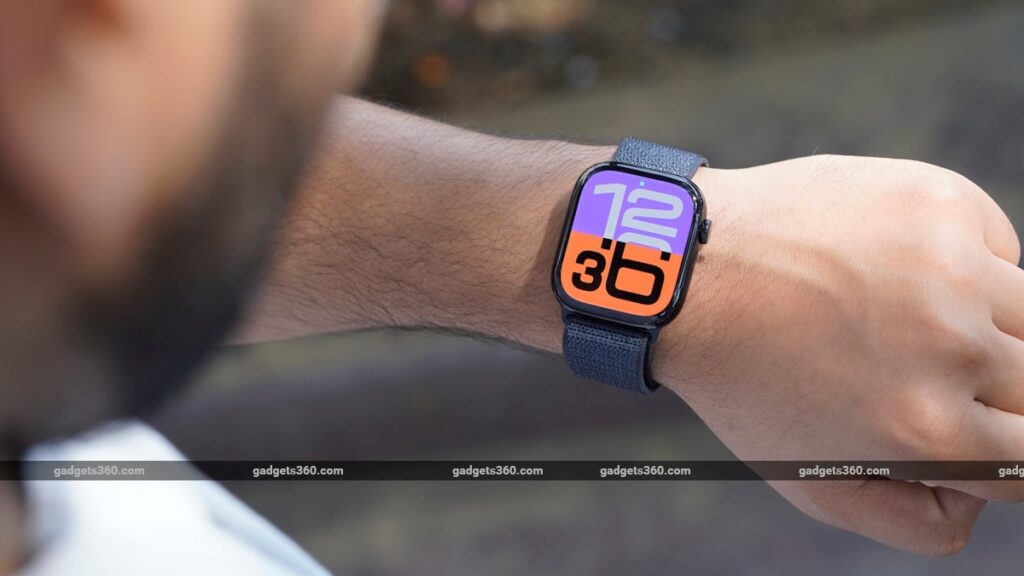Apple researchers, in collaboration with the University of Southern California, have developed a new artificial intelligence (AI) model that tracks behavioural data over sensor signals. The new research builds on prior work by the Apple Heart and Movement Study (AHMS) and was aimed at understanding if behavioural data, such as sleep pattern and step count, can be a better determinant of a person’s health compared to traditional indices such as heart rate and blood oxygen level. As per the paper, the AI model performed surprisingly well, even if with some caveats.
New Apple Study Shows Benefits of Moving Beyond Traditional Health Data
The study, titled “Beyond Sensor Data: Foundation Models of Behavioral Data from Wearables Improve Health Predictions” was published in the pre-print journal arXiv and is yet to be peer reviewed. The researchers set out to develop an AI model, dubbed Wearable Behaviour Model (WBM), that relies on processed behavioural data from wearables such as how long a person sleeps and their REM cycles, daily steps taken and gait, and how their activity pattern changes over the week.
Traditionally, to predict or assess someone’s health, wearable health research has typically focused on raw sensor readings such as continuous heart rate monitoring, blood oxygen levels, and body temperature. The study believes that while this data can be useful at times, it also lacks the full context about the individual and can have inconsistencies.
Regardless, so far, behavioural data, which is also something most wearables process, has not been used in systems as a reliable indicator of a person’s health. There are two main reasons for it, according to the study. First, this data is much more voluminous compared to sensor data, and as a result, it can also be very noisy. Second, creating algorithms and systems that can collect and analyse this data and reliably make health predictions is very challenging.
This is where a large language model (LLM) comes in and solves the analysis problem. To solve the noise in data, researchers fed the model with structured and processed data. The data itself comes from more than 1,62,000 Apple Watch users who participated in the AHMS research, totalling more than 2.5 billion hours of wearable data.
Once trained, the AI model used 27 different behavioural metrics, which were grouped into categories such as activity, cardiovascular health, sleep, and mobility. It was then tested across 57 different health-related tasks, such as finding out if someone had a particular medical condition (diabetes or heart disease) and tracking temporary health changes (recovery from injury or infection). Compared to the baseline accuracy, researchers claimed that WMB outperformed in 39 out of 47 outcomes.
![]()
Comparison between performance of the WBM model the test model and the combination of both
Photo Credit: Apple
The findings from the model were then compared with another test model that was only fed raw heart data, also known as photoplethysmogram (PPG) data. Interestingly, when individually compared, there was no clear winner. However, when researchers combined the two models, the accuracy of prediction and health analysis was measured to be higher.
Researchers believe combining traditional sensor data with behavioural data could improve the accuracy in the prediction of health conditions. The study stated that behavioural data metrics are easier of interpret, align better with real-life health outcomes, and are less affected by technical errors.
Notably, the study also highlighted several key limitations. The data was taken from Apple Watch users in the US, and the broader global population was not represented in this. Additionally, due to the high price of wearable devices that accurately collect and store behavioural data, accessibility of preventive healthcare also becomes a challenge.


